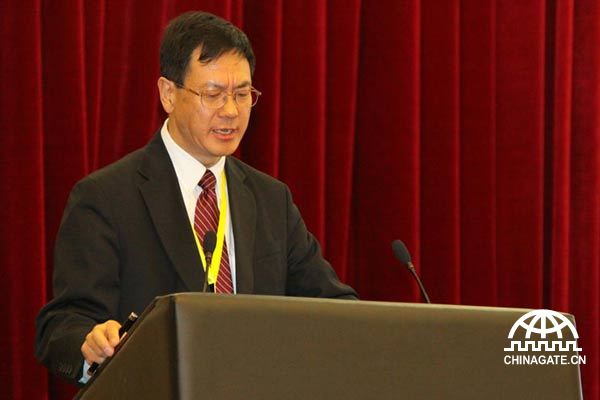Future of nanotech highlighted
chinagate.cn by Jiao Meng, December 12, 2014 Adjust font size:

The first International Conference on Nanoenergy and Nanosystems 2014, or NENS, began on Monday in Beijing. Attendees at the conference gathered to discuss how to apply nanomaterials to energy generation, sensors, self-powered devices and other emerging fields.
Held from Dec. 8 to Dec. 10, this event was organized by the Beijing Institute of Nanoenergy and Nanosystems (BINN) at the Chinese Academy of Sciences. About 600 scholars and experts from more than 10 countries and regions were invited to come to the event, which focused on topics such as energy storage and hybridized cells, piezotronics and nanoelectronics, etc.
C.P. Wong, Regents’ professor and Dean of Engineering at The Chinese University of Hong Kong, introduced visitors to the new technology of metal-assisted chemical etching on stacked 3D integrated devices. Precise nano-measured models can be produced by manipulating chemical reactions.
Professor Zhong Lin Wang, the chairman of NENS 2014, introduced the latest progress made by BINN. He also expressed hopes that this biannual meeting will become well-known in its field as a platform for scientists studying nanoenergy and nanosystems to exchange scientific information, build relationships, and possibly arrange collaborations.
In recent years, the rapid development of mobile electronics and sensor networks has created a desperate need for supplies of power sources that suit the independent, sustainable, maintenance-free and continuous operations of small electronics. Nanomaterials also have a broad impact on large-scale energy issues like energy harvesting and power management.


